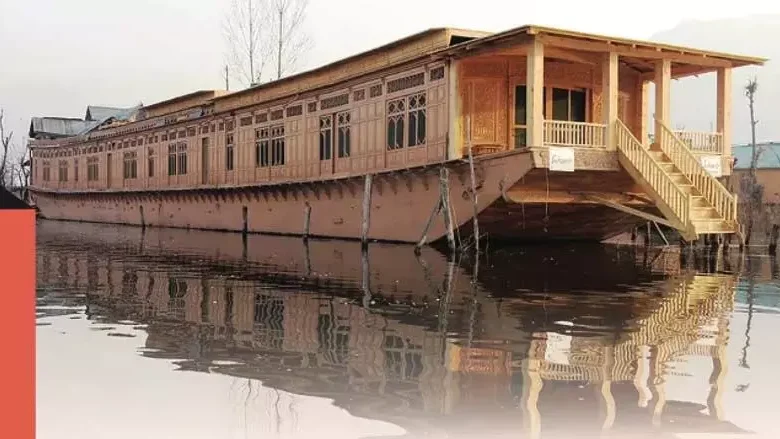‘Not a single tourist’: Houseboat owners’ livelihood in danger

Srinagar Srinagar, The morning sun is glistening on the rippling waters of Dal Lake, but the usual hustle and bustle of tourists has disappeared. Riaz Ahmed sits alone outside his houseboat, his weather-beaten hands occasionally covering his eyes as he looks out at the empty shore that should be teeming with tourists. “Last month, you couldn’t make yourself think because of the laughter and chatter,” says Ahmed, gesturing to his houseboat, which is adorned with ornate wooden workmanship and colourful flower boxes. Now there is only silence. It is deafening.” The terror attack on April 22 in the picturesque Baisaran meadows of Pahalgam claimed the lives of 26 tourists, completely crippling Kashmir’s tourism industry at what should have been its most profitable season. The impact has been immediate and devastating.
“By the end of June my houseboat was fully booked – not a single room was vacant,” Ahmed recalls. “When the Pahalgam tragedy happened, everything changed overnight. All the families staying in my rooms left the very next day. Since then? Nothing. Not a single tourist.” Ahmad’s experience mirrors the alarming decline reported by industry leaders. According to Manzoor Ahmad Pakhtoon, president of the Kashmir Houseboat Owners Association, occupancy rates have fallen sharply across the sector. “We operate around 780 houseboats, with a combined capacity of 2,800 beds,” Pakhtoon said. “Currently, occupancy has dropped to less than 10 per cent – something we have not seen in the last several years,” he added. “We all condemned the attack on innocent tourists. But now we are facing its harsh consequences. Tourists have almost stopped coming, and most worryingly, the wave of cancellations continues even in the summer season.” The impact of this on Kashmir’s economy is becoming increasingly clear. “It is not just about empty houseboats. We are talking about the livelihoods of thousands of people – boatmen, guides, handicraft vendors, restaurants, transport services,” Pakhtoon emphasises. The entire ecosystem dependent on tourism is coming to a standstill.”
The newly formed advisory committee of FCIK takes charge
The decision by the Jammu and Kashmir administration to temporarily close 48 of the 87 tourist spots in the region following the terror attack has further dented the confidence of interested tourists. Though the decision has been taken as a security measure, many stakeholders in the industry consider it a death knell for the season. Ghulam Mohammad Dar, who runs a fleet of tourist taxis, describes the situation bluntly: “In twenty-seven years in this business, I have weathered many storms, but this one feels different. My drivers are sitting idle, and I have had to tell some that they should not expect work for weeks. How will they feed their families?”
Paytm’s fourth quarter earnings fall 15.7%
For many businesses, the timing couldn’t be worse. April and May are crucial months when operators make enough to sustain themselves during the lean period. With this income source suddenly cut off, many are faced with existential questions about their future. As the sun begins to set over Dal Lake, Riaz Ahmad reluctantly retreats inside his empty houseboat. The lanterns that usually provide warm light for evening guests are extinguished. “Tourism and hospitality are in our blood,” he says, pausing at the entrance. “We Kashmiris have always prided ourselves on treating guests like family. So this attack wasn’t just on tourists – it was on our identity, our way of life. We will recover, but the scars will remain.”





